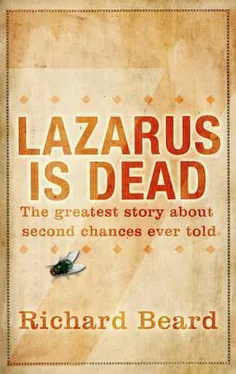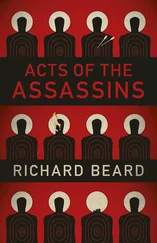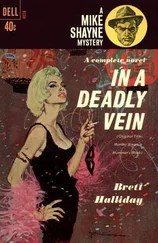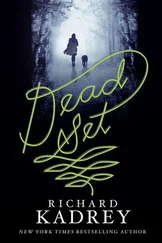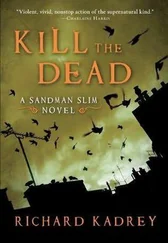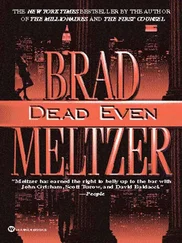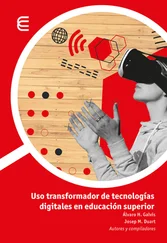‘You know what I mean. Do anything you like, as long as it doesn’t work. I trust you.’
‘I trust you too.’
*
After the fourth miracle, the feeding of the five thousand, Yanav is close to admitting defeat. Everything he knows he has tried, but Jesus outdoes him with a new miracle that sets Lazarus back.
Lazarus can’t remember when he last ate a proper meal, but the tack in his mouth tastes like mud and death. The stench around him is ferocious, a hanging presence that mixes nard and incense with necrotic human flesh. The end smell is always there, underneath, however powerful the man-made scents.
Yanav eases his pain. For headaches he applies leeches to the veins behind the ears. The leeches swell like glossy black ringlets — Lazarus as he’d have looked if born as someone else. When Lazarus complains about pressure on his eyeballs, Yanav inserts a leech inside his nostril, on the same side as the eye that hurts.
On other days he sits Lazarus forward in the bleeding position, elbows on knees and fists pressed hard into the sides of his neck. Yanav slices through a bulging vein between the eye and the ear, and catches Lazarus’s blood in a bowl.
‘Push harder. Hold your breath.’
This doesn’t count as healing, Yanav knows. Other healers bleed and leech endlessly, with little or no success. He therefore remains obedient to the wishes of Rome as expressed by Cassius. Even so, he studies the blood for clues. Every day he searches for patterns, solely for his own enlightenment, but sometimes the demon is active and sometimes it is not.
Yanav dresses Lazarus’s skin with a paste of crushed lime bark, and when he truly runs out of ideas he consoles Lazarus with stories about heroes. One day they’re weak and the next they’re strong. Like Samson, they’re down then they’re up.
This is the basic story everyone likes to hear. Job had his cattle and camels stolen, his servants murdered, his sheep burned alive and his children crushed by a hurricane. He did not despair. He recovered from calamity and lived to be a hundred and forty. Yanav tells tales about characters far worse off than Lazarus is now. And they end up somewhere better.
‘Amos,’ Lazarus mutters, ‘how did it get better for Amos?’
Yanav hasn’t heard of a hero called Amos. He blames the fever.
‘Gilgamesh,’ Yanav says.
He tries out the Mesopotamian demigod Gilgamesh, who is often in trouble and always prevails, his long life describing the great adventure of an active man avoiding death.
After the feeding of the five thousand Lazarus is housebound: his life shrinks to his nest in the corner where he sits on the floor among cushions and blankets. A bowl of soft-boiled walnuts is on a rug beside him, but his wider field of vision has narrowed. He can see clearly, but as if through a tunnel. Sometimes his sisters approach, at others he stares at the bag of dried beans hanging from a nail in the door.
He crushes his cheek against the white hardness of the wall. A spider crawls straight towards his eyes. He grunts, and it changes direction, moving away.
Nothing is preordained. Any second now he will send a message from his brain to his hand. He’ll raise his hand above his head. Not yet, but when he chooses to do so. He may not send the message at all — nothing is predetermined because now, he decides, equally, that he will not send the message and he will not raise his hand.
Instead he makes a noise. Unghh. That was unexpected, but he, Lazarus, is the being who made the noise happen. He can decide to do it again. If he chooses, he can make sounds that don’t yet exist in the world and will only exist if he, Lazarus of Bethany, consciously decides to make them. Or they will never exist and never have existed if he decides otherwise.
He raises his arm. Unghh. He concentrates so hard on his free will that his eyes lack focus. Unghh. Raises his arm. Unghh. He is acting like a man possessed.
He chooses to stop. There has been some mistake, because he is not this kind of person. Nor is he ready for death, not Lazarus, and personally he can’t imagine anyone less suited to dying. He is not the dying type. Too young. Too much ambition.
He has an idea. There is a way to save himself that he hasn’t yet tried.
3
However bad Lazarus looks and smells, and whatever Cassius may have decided, Yanav remains convinced that he can feel in Lazarus an indomitable force of survival. He buys an orange-feathered hen.
On the whole, reading the future is more trouble than it’s worth, but Yanav has never known anyone resist his cures like Lazarus. He’d like to find out where he’s going wrong.
A ribbon of pink light breaks across the hills to the east. A cock crows in the village. Some dogs bark, then go quiet. Yanav squats in a grey pre-dawn corner of the Lazarus courtyard, the hen in the crook of his arm. He strokes its ginger head with one flat finger, makes magical sounds, breath that never quite shapes as words.
The chicken calms in his expert hands, clucks occasionally at remembered courtyard indignities.
Yanav wrings its neck. He sighs, lays the twitching body on the ground. It is warm to the touch. He disembowels it, using the point of his knife to prise out the pulsing guts. He puts aside the heart, which he’ll crush together later with some bindweed, then concentrates on the liver. The liver is the origin of blood and therefore the base of animal life. He slices it into the centre of a circular dish, cutting seven sections, each for a specific deity.
The pieces of liver bleed in different ways. He swills them clockwise three times round the edge of the dish, then examines closely the position that each god chooses to take.
At first, he can’t make sense of what he’s seeing. He must have made a mistake, an apprentice error like swilling the pieces in the wrong direction.
Yanav has never seen an augury like it, and a cold breath passes along his spine. Right is wrong and up is down. The gods are doing something new, he thinks, and the first time round they can make mistakes. That’s what they usually do. They make mistakes until they get it right. Many people suffer.
*
Martha fans him when he is hot and Mary wraps him in blankets when he is cold. Yanav sees a frail body holding tight to its soul. Lazarus floats into sleep and out again.
He remembers the Arab traders who used to detour to Nazareth from the Via Maris. He loved to watch them working the marketplace, and he’d sneak glances at their black-eyed daughters. He was sixteen years old. The women found him amusing.
One day in winter, when the seasonal caravanserai moved on, he joined some carpet weavers on the first stage of their journey east. Jesus followed along, and Amos walked closely beside Jesus. Amos had convinced himself that he was Jesus’s special friend, even though he was two years younger. To deepen this friendship he’d started acting like Lazarus, only more so. He should bustle ahead, be first at whatever they did.
‘You can’t come,’ Lazarus said. ‘No fourteen-year-olds.’
‘I’ll stop at the lake. Might get some work from the fishermen.’
‘You don’t know what you’re talking about. You can’t even swim.’
‘I can. Easily as well as you.’
They became part of the Arab convoy, pretending they were adventurers to the heart of Persia.
‘Goodbye, Galilee!’ Amos shouted. ‘I’ll be back when I’m rich!’
‘Or by sunset,’ Lazarus said, ‘whichever comes sooner.’
At Capernaum, the weavers rolled out their mats and set up awnings in the marketplace, while the three boys from Nazareth explored the rocky shore of Lake Galilee. They skimmed stones and watched the launch of fishing boats, the sails catching and dragging the men away. Poorer fishermen cast from the beach, wading in as far as their thighs, wrestling with the heavy knots of their nets. Today they were in a hurry. There was a storm coming.
Читать дальше
